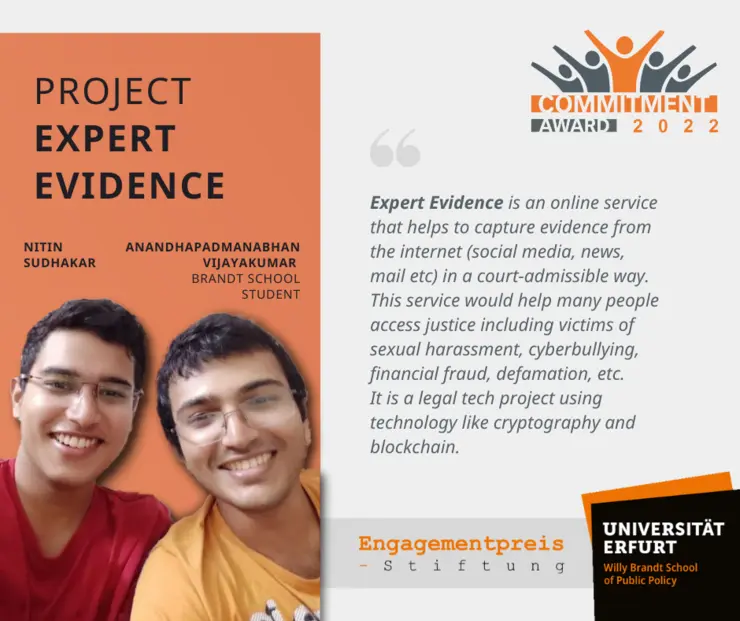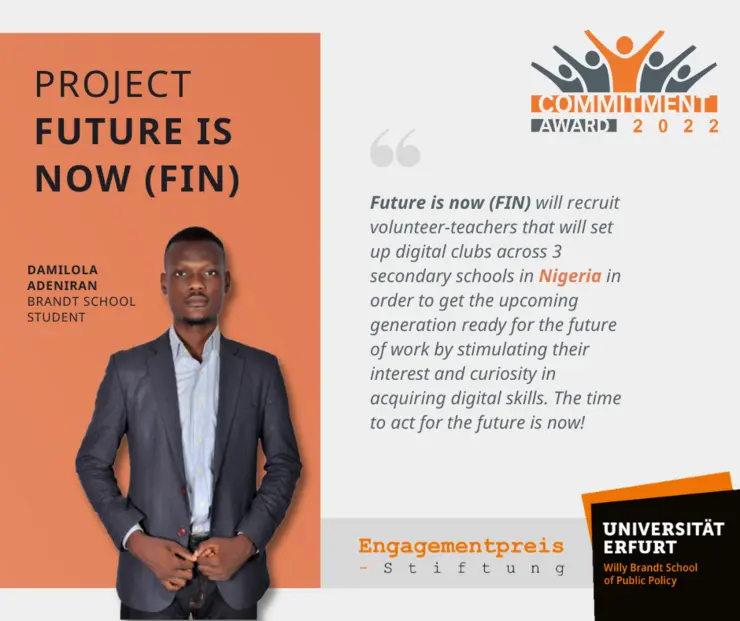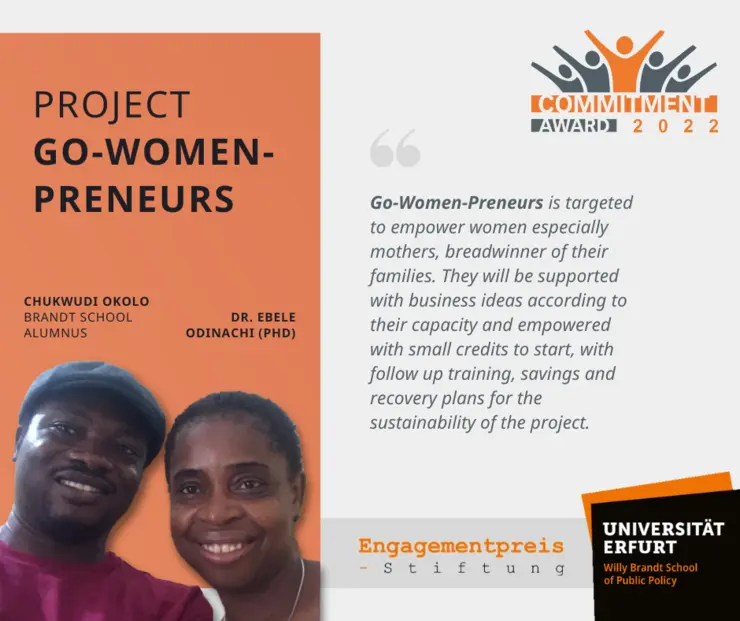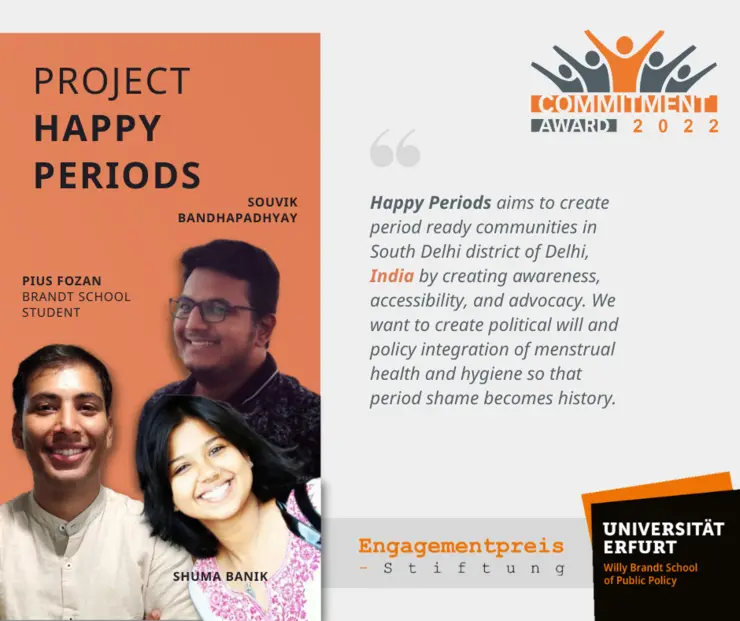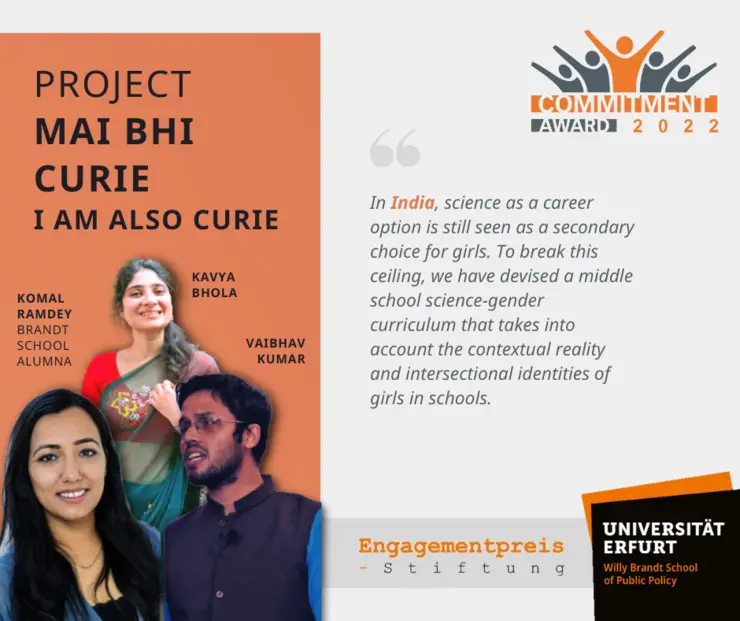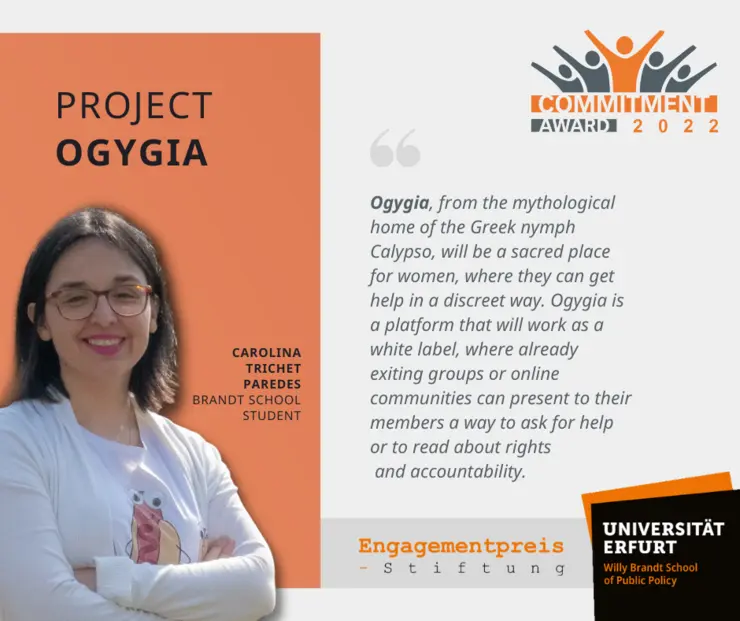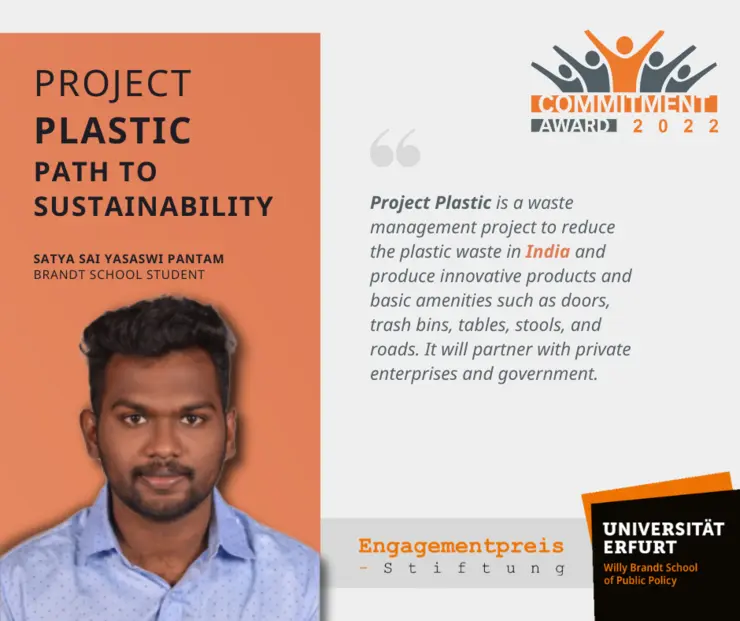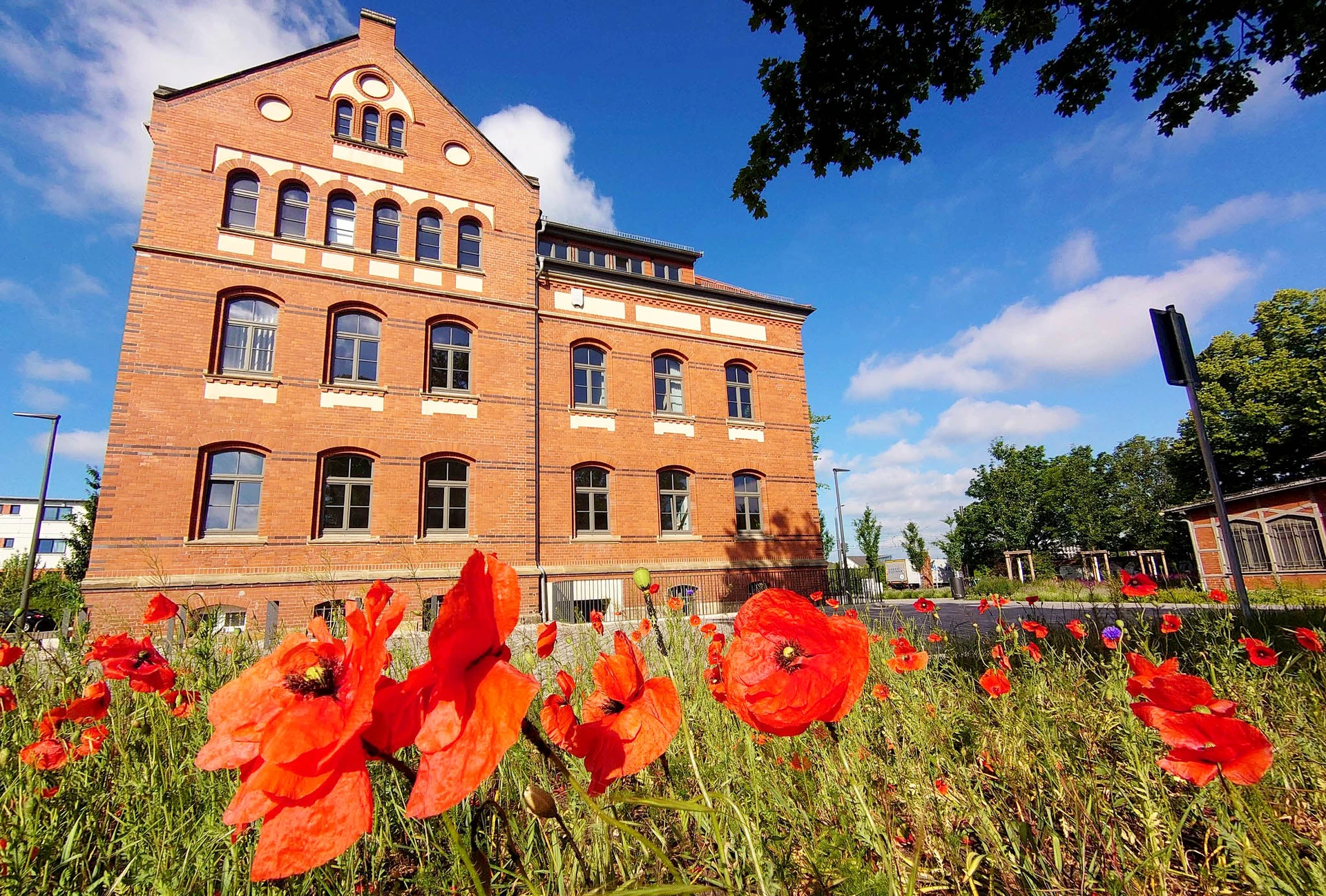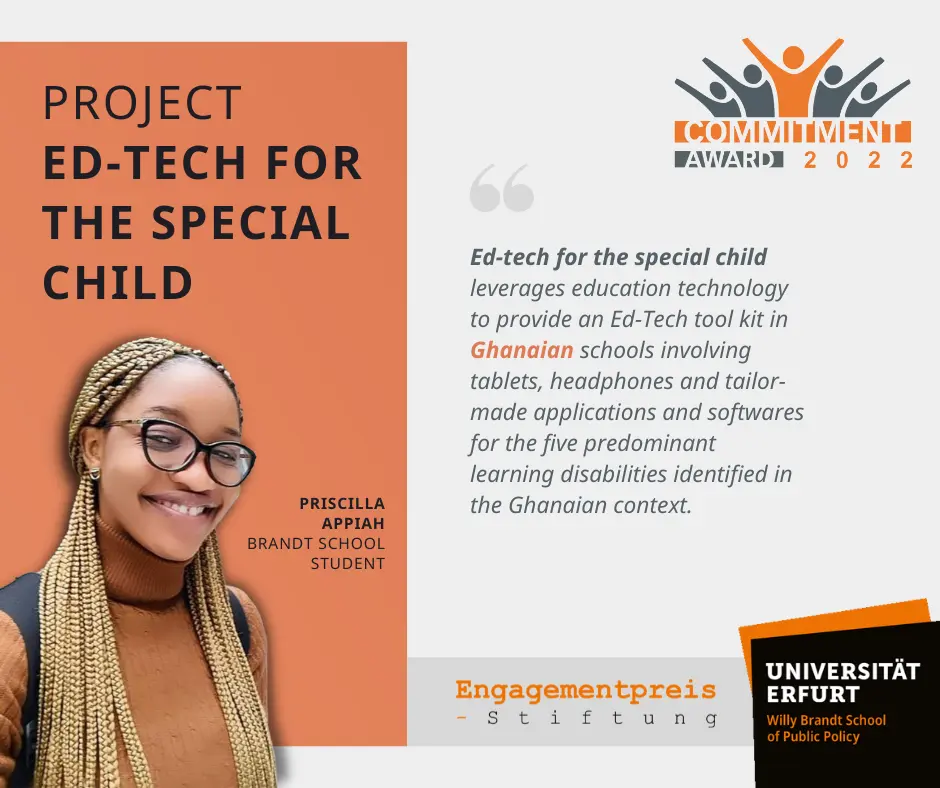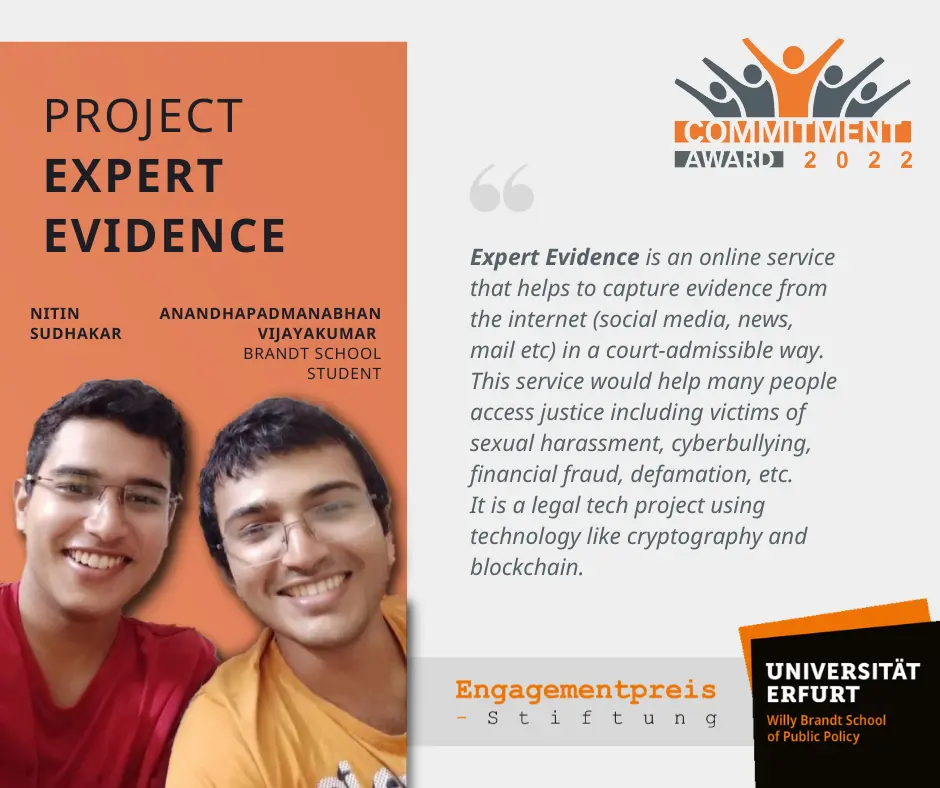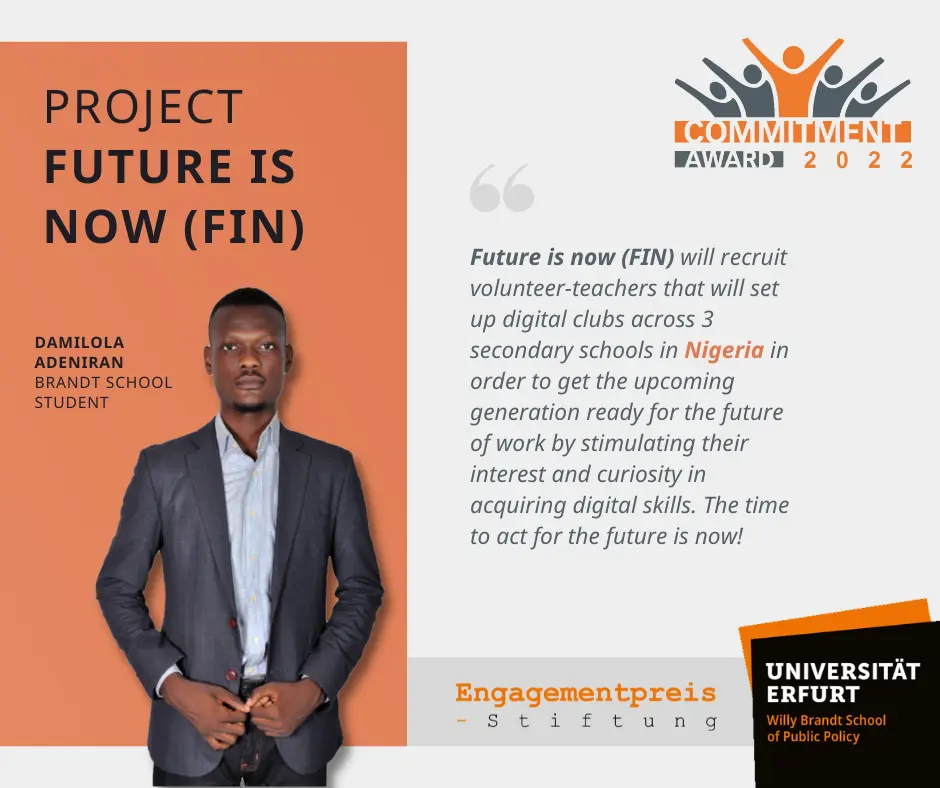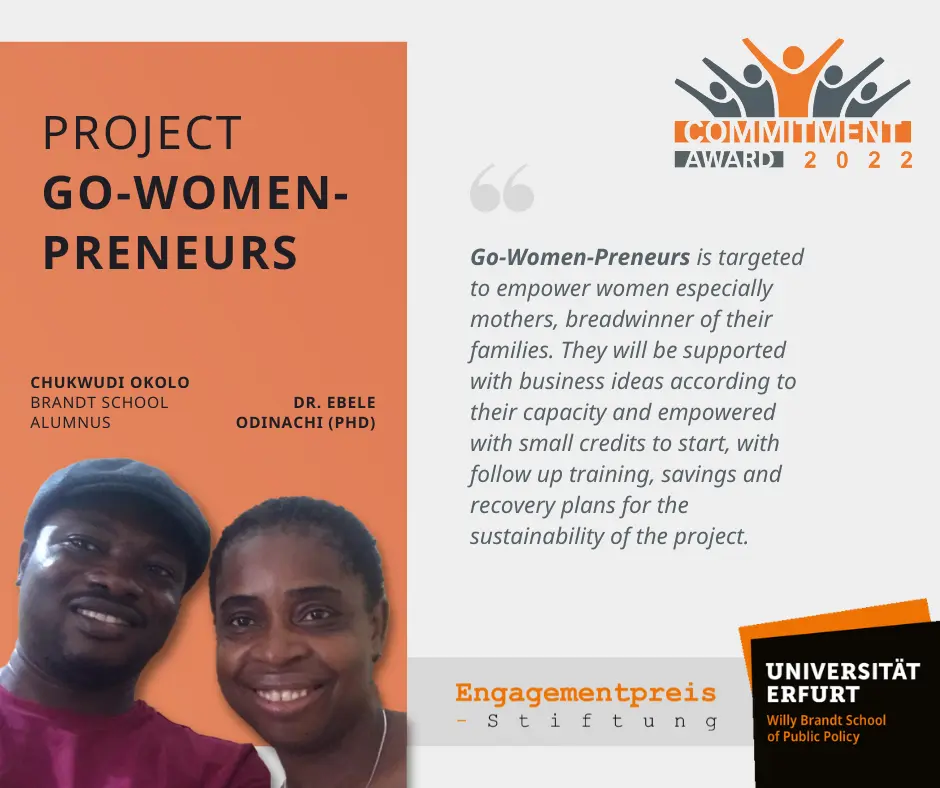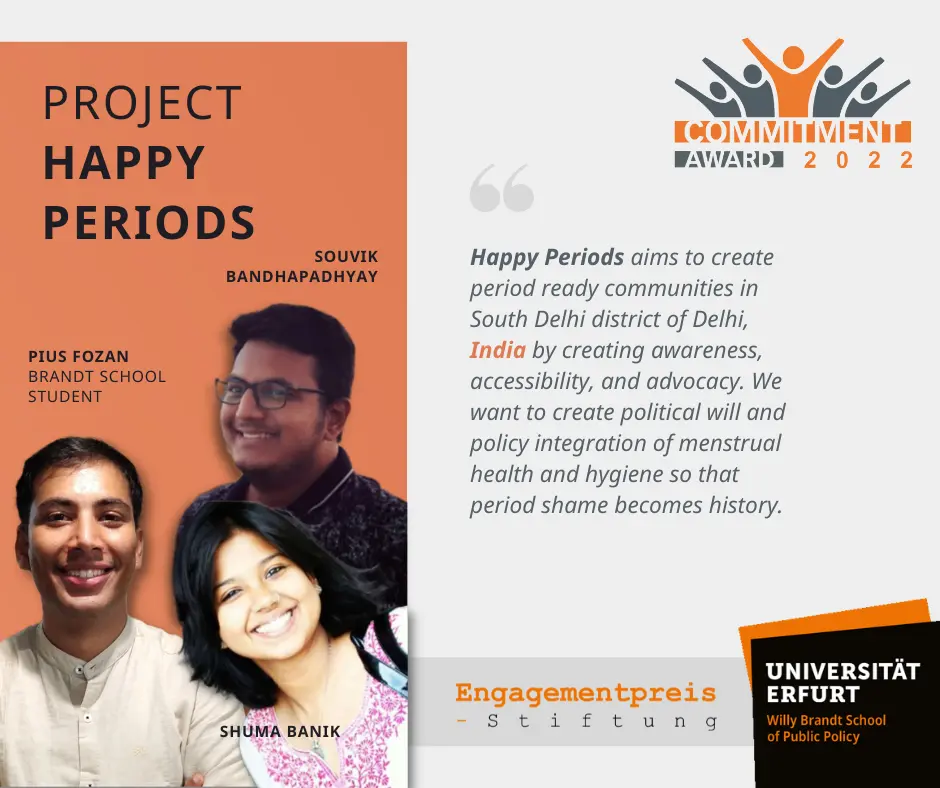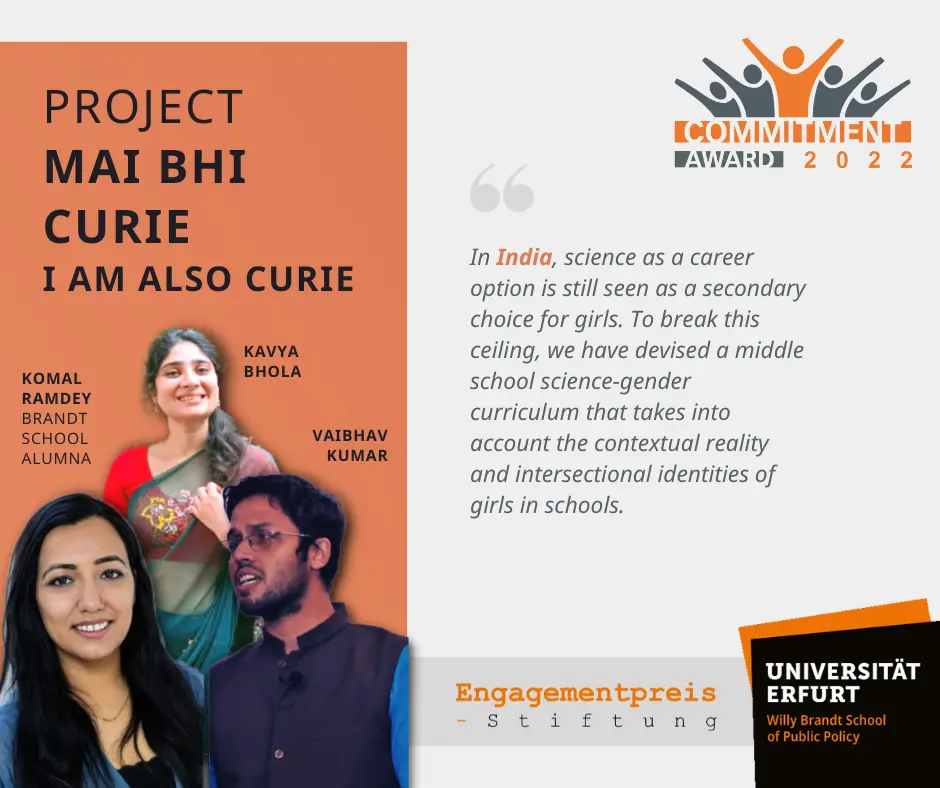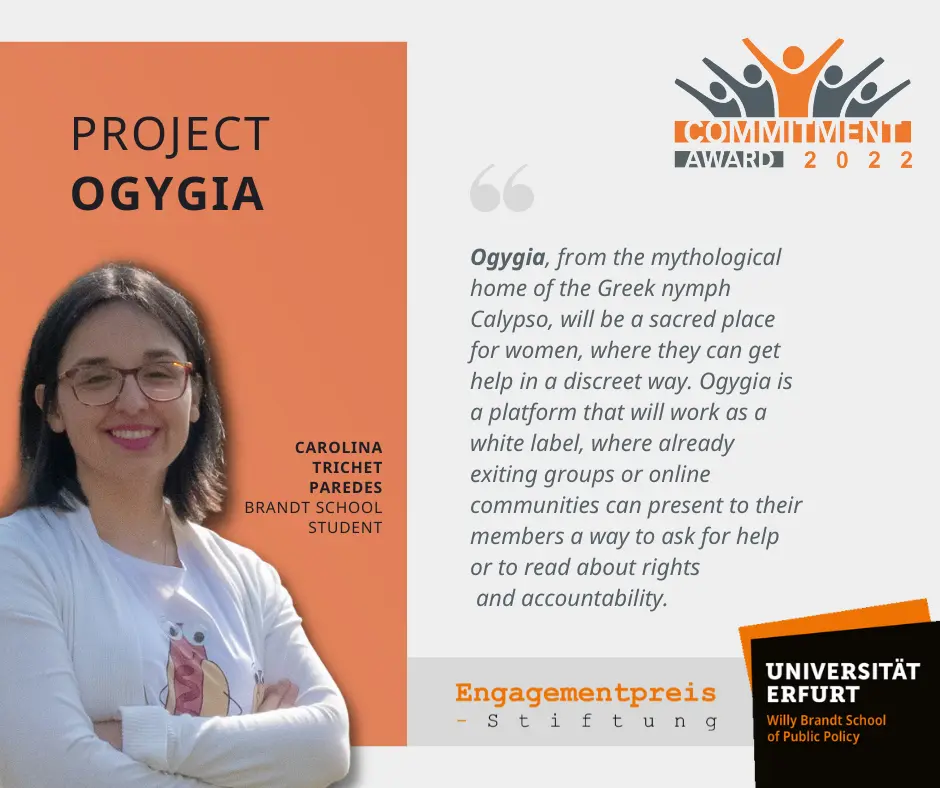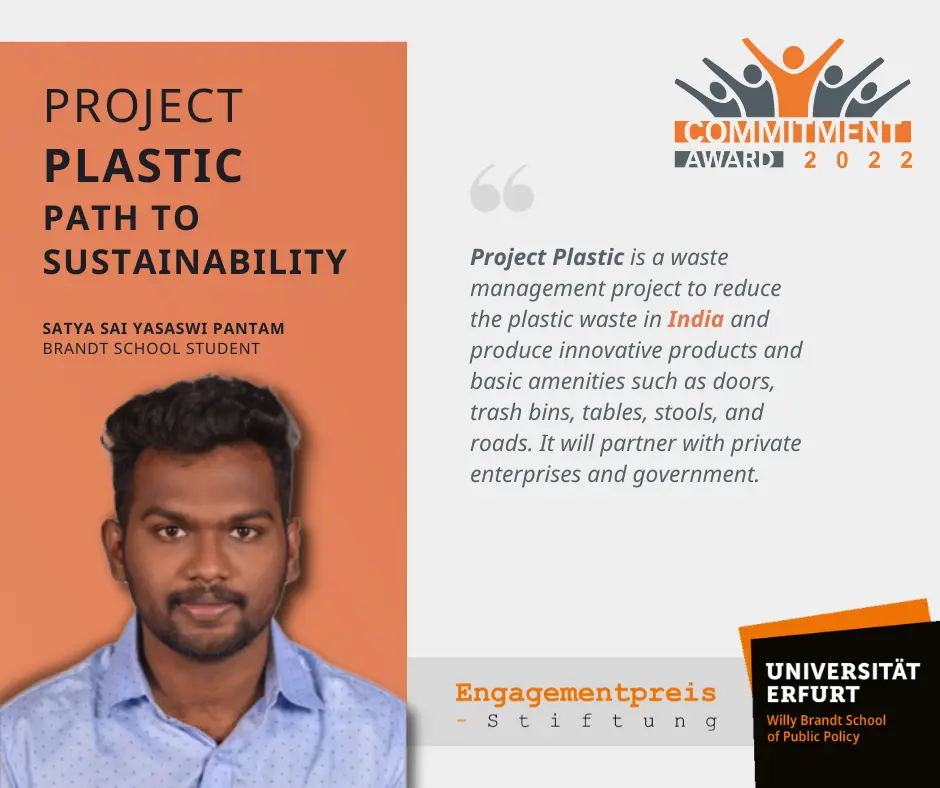Willy Brandt himself was a driver of social change, which is clearly reflected in his social and political reforms. He was convinced that politics serves no purpose if politicians do not have a clear goal in mind when they make policy. The multicultural, diversity-oriented environment of the Brandt School offers students the opportunity to develop new social projects as part of the Commitment Award - in Erfurt and worldwide.
Every year, a jury of experts selects three winners for the Commitment Award based on the following guiding questions: How charitable is the project? How much potential and sustainability does the project have? Is the prize money used responsibly and effectively? Is the project likely to be implemented? Eight projects are in the running this year. We present them briefly here:
Priscilla Appiah: Ed-Tech for the Special Child
Ghana’s education system is considered to be one of the most progressive systems in Africa. In 2018, UNESCO Global Monitoring Report on Education for All listed Ghana as one of the three top performing countries in the world for reducing out-of-school populations by at least 85% over the past five years. Despite this remarkable progress in primary education, challenges still remain in educating children with special learning needs (learning disabilities). Schools for children with special learning needs are underserved and lack resources. Coupled with this, teachers in these schools use the same traditional teaching methods used in mainstream schools which have yielded little to no results in developing the unique capabilities of special learners. This project leverages education technologies to provide an Ed-Tech tool kit involving tablets, headphones and tailor-made applications and software for the five predominant learning disabilities identified in the Ghanaian context.
Anandhapadmanabhan Vijayakumar, Nitin Sudhakar: Expert Evidence
This online service helps to capture evidence from the internet (social media, news, mail, etc.) in a court-admissible way. Methods of capture like screenshots, print, etc. are not admissible as evidence in court proceedings. A service that helps to capture evidence in a court-admissible way would help many people access justice including victims of sexual harassment, cyberbullying, financial fraud, and defamation. This is especially when there is no other method currently available to them to capture such evidence. This innovative and sustainable project is a legal tech project using technology like cryptography and blockchain.
Damilola Adeniran: Future Is Now (FiN)
It has long been feared that Nigeria is not yet ready for the future of work that will require digital skills and disrupt traditional jobs as we know them. Now, the pandemic is speeding up that transition. This project will recruit volunteer-teachers that will set up digital clubs across 3 secondary schools in Nigeria in order to get the upcoming generation ready for the future of work by stimulating their interest and curiosity in acquiring digital skills. The time to act for the future is now!
Chukwudi Okolo and Ebele Odinachi: Go-Women - Preneurs Initiative
An age long adage states that when you train a woman, you train a nation, which also implies that when you empower a mother, you build nations. Go-Women-Preneur Initiative is a project that target to empower women, especially mothers who are the breadwinners of their families. They will be initially supported with business ideas according to their capacity and empowered with small credits to start, with follow ups including further training, savings and recovery plans for the sustainability of the project. 100 euro is confirmed as enough to start a small business in the context of Nigeria or other developing nations.
Pius Fozan, Shuma Banik und Souvik Bandhapadhyay: Happy Periods
For most menstruators, the phase of their menstrual cycle is a transformative stage of life during which they go through emotional and bodily changes. These are also the formative years in terms of education, health, and livelihood generation. Hence, access to information and services is critical to enable a healthy life for menstruators. Taking cognizance of the benefits of menstrual health awareness and the accessibility of menstrual products, the project, Happy Periods, aims to create a culture of acceptance of menstruation. We plan to work with menstruators, government officials, bureaucrats, gatekeepers like mothers, and teachers to influence the policymakers and make period poverty history.
Komal Ramdey, Kavya Bhola und Vaibhav Kumar: “Mai bhi Curie – I am also Curie”
In India, science as a career option is still seen as a secondary choice for girls. Only 14 per cent of science and Mathematics researchers in India are women. The problem is graver in rural areas coupled with intersectional identities of gender, caste, religion and social class for the girls. The critical years to tackle this are upper primary years for girls. To break this ceiling, we have devised a middle school science-gender curriculum that takes into account the contextual reality and intersectional identities of the girls studying in the schools.
Carolina Trichet Paredes: Ogygia
One of the pandemic's biggest consequences was the unveiling the gender-based violence against migrant women. Migrant women struggle with slow integration and in Germany, the biggest obstacle is the language barrier. Ogygia, from the mythological home of the Greek nymph Calypso, will be a sacred place for women, where they can get help in a discreet way. Ogygia is a platform that will work as a white label, where already exiting groups or online communities can present to their members a way to ask for help or to read about rights and accountability.
Satya Sai Yasaswi Pantam: Project Plastic - Path to Sustainability
Rajahmundry City is a city of 552,000 in the state of Andhra Pradesh in the southern part of India. 600 Kilograms of plastic waste per day is produced from Rajahmundry and nearby vicinities. Project Plastic is a waste management project to reduce the plastic waste and produce innovative products and basic amenities such as doors, trash bins, tables, stools, and roads. It will be a business to business and direct to consumer model which will partner with private enterprises and the government.
So now it's "fingers crossed". Who will come out on top this year will be decided in July. But to be honest: For us, all the projects are already winners and we wish them all good luck!
... will take place on Thursday, 7 July, at 6 pm in front of invited guests at the Collegium Maius (Michaelisstraße). If you are also interested in taking part, please contact us by e-mail: publicpolicy@uni-erfurt.de.


